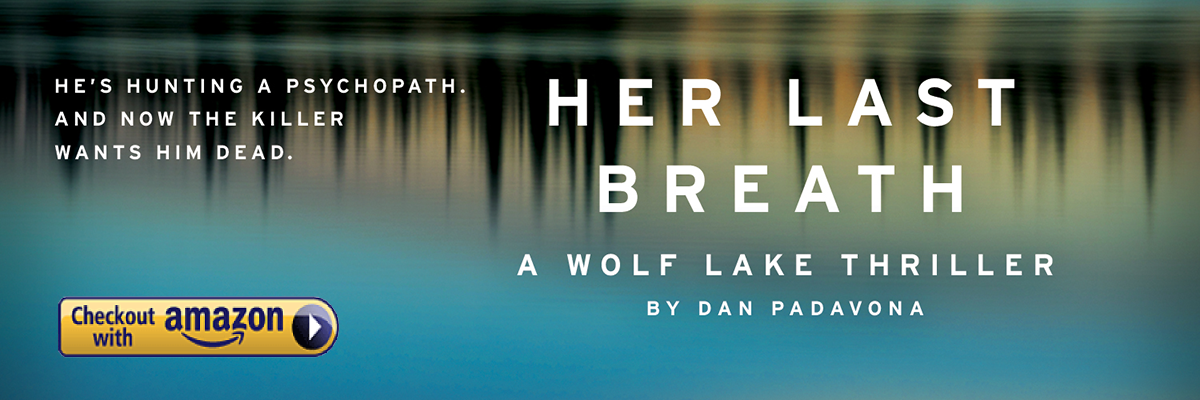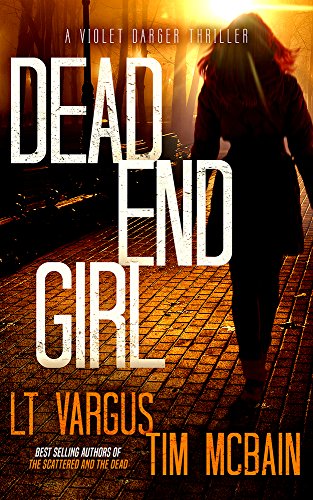In 1991, director Jonathan Demme and screenwriter Ted Tally developed a featured film version of Thomas Harris’s classic novel, The Silence of the Lambs. The film grossed $14 million over a four-day weekend in February of the same year, and the nation’s fascination with serial killer thrillers exploded.
Between Demme’s direction and the excellent cast, headlined by Jodie Foster as Clarice Starling and Anthony Hopkins as the iconic Hannibal Lecter, The Silence of the Lambs garnered overwhelmingly positive reviews, eventually spawning three additional movies in the Hannibal Lecter series: Hannibal (2001), Red Dragon (2002), and Hannibal Rising (2007). And I’d be remiss not to include Manhunter (1986), the original film adaptation of Red Dragon, directed by Michael Mann and starring William Petersen of CSI fame.

While The Silence of the Lambs brought serial killer thrillers into the limelight, serial killers have long fascinated readers and the moviegoing public. Perhaps the most famous celluloid serial killer is Michael Myers, the cypher murderer in John Carpenter’s all-time classic, Halloween.
However, what is it that draws us to these dark and gruesome narratives? Why do we find ourselves eagerly consuming tales of murder, madness, and malevolence?
Why do we love serial killer thrillers?

One theory suggests that humans, by nature, are curious creatures, especially when it comes to the unknown or the taboo. Serial killer thrillers, both in literature and on screen, expose us to a world that most of us will thankfully never encounter. They pull back the curtain on the darkest corners of the human psyche, showing us the terrifying extremes of human behavior. This form of vicarious experience allows us to confront our deepest fears in a controlled environment, from the safety of our living rooms or cinemas.
Moreover, these narratives often intertwine complex psychological motives, moral ambiguity, and the age-old struggle between good and evil. As viewers, we’re not just hooked by the brutality of the crimes; we’re deeply invested in understanding the ‘why’ behind them. The allure of the unknown, of trying to decipher what makes a person commit such heinous acts, is perhaps what makes these stories so enthralling.
Additionally, the protagonists in these stories—whether they’re flawed detectives, vulnerable victims, or determined reporters—often serve as our proxies. Through their journey, we’re challenged to test our own limits, to confront our biases, and to question our notions of justice and morality. Think about the nuanced relationship between Clarice Starling and Hannibal Lecter: it’s a dance of manipulation, respect, fear, and mutual understanding. Such intricate relationships, riddled with tension and unpredictability, keep us glued to our seats.
There’s also the adrenaline factor. The suspense, the heart-pounding chases, and the nail-biting confrontations offer an adrenaline rush that many seek out in their entertainment choices. The strategic positioning of jump scares, shocking revelations, and tense stand-offs are all mechanisms designed to evoke strong emotional reactions from the audience.
But beyond the surface-level thrills, serial killer thrillers often provide a broader commentary on society and its ills. They hold up a mirror, forcing us to confront societal norms, the fragility of sanity, and the thin line between right and wrong.
Our fascination with serial killer thrillers is multifaceted. It’s not merely about the gore or the horror; it’s about introspection, understanding human nature, and the unending quest to understand the duality of man. As long as humans grapple with these existential questions, our appetite for such narratives will remain insatiable.
Truth is scarier than fiction
In fact, many fictional serial killers are based on real-life murderers. Leatherface of The Texas Chainsaw Massacre (1974) is based on serial killer Ed Gein, the butcher of Plainfield. If you thought the macabre body parts found in Leatherface’s lair were unrealistic, think again. Gein upholstered chairs and yes, even a trash can, with human skin. Human skulls served as bowls inside his home. Were it not for this macabre history, serial killer thriller Dusk Corners wouldn’t exist.
Ivan Milat, also known as the Backpack Killer, never confessed to committing multiple murders before he died in prison. But his character inspired Wolf Creek (2005), a controversial horror movie reviled by critics, but revered by a small, but vocal, tribe of horror fans who loved the movie.
John Wayne Gacy, the serial killer infamous for dressing up as a clown, inspired To Catch a Killer (1992). Charles Starkweather and girlfriend Caril Ann Fugate influenced the murderous rampage in Natural Born Killers. Hollywood has brought countless horror and psychological thriller movies to the screen about the BTK Killer, Dahmer, and the Manson family. Lest we forget, Jack the Ripper.
The long and dark shadow that Jack the Ripper casts on popular culture is undeniable. Despite operating in the late 19th century, this unidentified serial killer has left a mark on literature, movies, and even musicals. The Ripper’s anonymity and brutal methods have made him a symbol of terror and mystery. This potent combination of enigma and dread has fueled numerous retellings, with the 2001 thriller From Hell, starring Johnny Depp, being one of the most noteworthy.
The question that then beckons is: why do we gravitate towards retellings and fictionalizations of real-life killers? Perhaps it’s the eeriness of the truth. When fiction is imbued with real, tangible history, it brings about a visceral reaction that pure fiction might struggle to achieve. It’s the haunting thought that this happened, that someone actually did these unthinkable things.
The very act of fictionalizing these real-life monsters gives writers and directors a means to explore the broader societal issues that might have given rise to such psychopathic tendencies. In many cases, these retellings focus not only on the killer’s horrific deeds but also on their backgrounds, traumas, and triggers. This provides an avenue to discuss and dissect the environments, family dynamics, and societal pressures that could possibly shape such malevolent personalities.
Hollywood and morality

But for all the intrigue that real-life based serial killer tales provide, there’s also a moral responsibility that creators must bear. There’s a fine line between dissecting and understanding these real-life monsters for a greater societal understanding, and glorifying their heinous acts for sheer entertainment. There’s an implicit danger in sensationalizing these stories, which can inadvertently humanize the killers while sidelining the victims, who often become mere footnotes in the larger, more ‘captivating’ narrative of the murderer.
In Hollywood’s quest to delve into the minds of these killers, some might argue that the victims and their stories get lost. It is vital to ensure that in our bid to understand the twisted, we do not overshadow the narratives of those who suffered at their hands.
To put it succinctly, our ongoing fascination with serial killer thrillers – be it purely fictional or inspired by real events – stems from a blend of morbid curiosity, the thrill of fear, and the human need to comprehend the incomprehensible. While the allure of such tales is undeniable, it’s paramount that as creators and consumers, we approach them with sensitivity, ensuring that the stories of the silenced don’t remain in the shadows.

Hollywood wouldn’t bother if serial killers didn’t sell tickets. But they do, decade after decade. Several serial killer thrillers and psychological thrillers rank among the hottest-selling novels on Amazon, with household names like Lisa Gardner, Robert Dugoni, Gillian Flynn, L.T. Vargus, and Thomas Harris dominating the charts. Even Stephen King and Dean Koontz feature serial killers in stories.
Whether we’re analyzing thrillers or horror, fans flock to fictional serial killers.
But why?
I’ve always found serial killers more terrifying than monsters and the supernatural, because serial killers exist, and we realize that the horror taking place on the screen could actually happen. You’ll need to suspend your belief after Dr. Loomis shoots Michael Myers multiple times, and the killer jumps up and stalks Laurie Strode again, or when Jason, no matter how many times he’s blown up or chopped into bits, returns to kill again in a Friday the 13th sequel.
Yet it’s difficult to argue serial killers aren’t flat-out more believable than Bigfoot, Godzilla, and the Amityville Horror ghosts. Statistics show that there are thirty to fifty active serial killers stalking the United States at any given time. Those are a lot of true-life horrors hiding in the shadows. If that number shocks you, consider that it was higher twenty years ago.
The serial killer thriller will always rank among the most popular suspense novels, as long as murder and true-life scares continue to fascinate us.
What are your favorite serial killer thrillers? Join the discussion below.




One thought on “Our Fascination With Serial Killer Thrillers”
Hi Dan
Here’s my list of my all-time favorite Serial killer Fiction. Many are written in the 1st person POV, which I particularly like, especially if written from the killer’s perspective:
1. Killer on The Road by James Ellroy
2. A Special Place: the heart of a dark matter by Peter Straub
3. The Killer by Colin Wilson
4. Exquisite Corpse by Poppy Z. Brite
5. Zombie by Joyce Carol Oates
6. The Girls he Adored by Jonathan Nasaw
7. Head Hunter by Michael Slade
8. Stray Bullets (series) by David Lapham
9. The Killer Inside Me by Jim Thompson
10. I AM Not a Serial Killer (John Cleaver) by Dan Wells
11. Frenzy by Rex Miller
12. The Wasp Factory by Iain Banks
13. American Psycho by Brett Easton Ellis
14. Slob by Rex Miller
15. Psycho by Robert Bloch
16. The Sandman by Miles Gibson
17. Blackburn by Bradley Denton